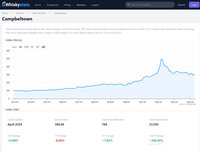Why invest in whisky

Why Invest in Whisky
Investing in whisky has gained significant attention from enthusiasts and investors alike in recent years. Once considered a niche market, it has now evolved into a serious investment vehicle with high potential returns. This text will explore various aspects of whisky investments, including historical performance, factors determining value, and the benefits and risks of this alternative investment.
Historical Performance of Whisky as an Investment
The performance of whisky as an investment has been impressive. The Knight Frank Rare Whisky Index, which tracks the prices of the rarest and most valuable bottles, has shown consistent growth. Over the past decade, rare whiskies have averaged an annual appreciation of over 20%. This growth surpasses that of many traditional investments like stocks and real estate.
One reason for this rise is the growing global demand for premium and rare whiskies, particularly from Asia. Countries such as China and Japan have an increasing middle and upper class seeking luxury goods, including whisky. This has significantly boosted demand, while the supply remains limited due to the lengthy production times and the finite number of rare bottles available.
Factors Influencing the Value of Whisky
Several factors influence the value of a bottle of whisky. First, there is age. Generally, the older the whisky, the more valuable it is. This is because older whiskies often develop more complex flavors through long-term aging in barrels. Additionally, older bottles are typically rarer, which increases their value.
Second, the distillery plays a crucial role. Certain distilleries have built reputations for producing high-quality whiskies. Brands like Macallan, Glenfiddich, and Ardbeg are highly sought after by collectors and investors. Whiskies from closed distilleries, such as Port Ellen and Brora, are especially valuable because they are no longer produced, enhancing their scarcity and, consequently, their value.
Another significant factor is packaging. Whisky in its original, undamaged packaging, especially in limited edition or signed bottles, can be considerably more valuable. The aesthetics and presentation can make a substantial difference for collectors willing to pay a premium for unique items.
Benefits of Investing in Whisky
One of the primary benefits of investing in whisky is portfolio diversification. Traditional investments like stocks and bonds can be volatile, while whisky is a tangible asset that operates independently of financial markets. This can act as a hedge against inflation and market volatility.
Additionally, whisky offers intrinsic enjoyment that many other investments do not. For enthusiasts, owning a valuable bottle of whisky is not only a financial investment but also a passion. The ability to taste and share these rare beverages adds an extra dimension to the investment.
Furthermore, whisky has historically shown a low correlation with traditional markets. This means that the value of whisky is not directly affected by economic crises or stock market fluctuations. For example, during the 2008 financial crisis, the prices of rare whiskies remained stable or even increased.
Risks of Investing in Whisky
While the potential benefits are attractive, there are also risks associated with whisky investments. One of the biggest risks is authenticity. The market for rare whiskies is susceptible to counterfeits. It is crucial to purchase bottles from reputable sellers and, if possible, obtain certificates of authenticity.
Moreover, the market for whiskies is less liquid than that for stocks or bonds. Finding a buyer for a rare bottle of whisky can take time, and prices can vary depending on demand at a given moment. This means investors need to be patient and willing to hold their investments for the long term.
Another important aspect is storage. Whisky must be stored under the right conditions to maintain its quality and value. Factors such as temperature, humidity, and light can affect the contents and packaging of the whisky. Insurance and specialized storage facilities may be necessary, which can incur additional costs.
Conclusion
Investing in whisky can be a lucrative endeavor for those willing to invest the time and effort to understand the market. The strong historical performance, combined with increasing demand and limited supply, makes whisky an attractive alternative investment. However, as with any investment, it is essential to understand the risks and conduct thorough research before entering this niche market.
For both passionate collectors and strategic investors, whisky offers a unique opportunity to benefit from a market that continues to evolve and grow. By investing in rare and high-quality bottles, investors can enjoy potentially high returns and the ownership of a piece of liquid history.
No comments found.












